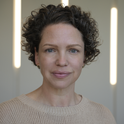Presentation
Hidden Intersection: Helping Graduate Students Cross the Threshold from Student 2 Scholar using Framework-Driven, Blended Learning IL Interventions
The Workshop for Instruction in Library Use (WILU) 2016 / University of British Columbia
(2016)
Abstract
Teaching faculty, librarians, and staff in institutions of higher education have now had more than a year to familiarize themselves with and begin to adjust their instruction in response to the Association of College and Research Libraries’ Framework for Information Literacy in Higher Education (ACRL, 2014). But adapting one’s pedagogy from an IL Standards, largely skills-based approach to one grounded in social learning theory is no small feat. Add to this the ever present and pressing challenges of teaching with technology and reaching online students who, increasingly, will never set foot on our campuses, yet alone in our libraries or physical classrooms.
In response to this very challenge, a diverse and distributed team of academic librarians and university staff, graduate students and instructional designers, devoted the better part of a year to the design and development of an open access, self-directed series of online modules on the subject of academic literacies and research skills for social science graduate students. Based on ACRL’s Framework for Information Literacy for Higher Education, and acknowledging that research and scholarly development is an iterative process, www.Student2Scholar.ca (S2S) takes a holistic approach in the organization of its content. Presented in ten modules, including a pre-module on citation management, the framework of S2S is loosely based on a four-phase research process: inquiry & exploration, investigation & organization, analysis & evaluation, and creation & communication. Though www.Student2Scholar.ca may be used as a repository of teaching and learning assets, activities, and assessments from which faculty, librarians, and staff, or graduate students themselves may draw directly, it also provides a case-study in, and an opportunity to facilitate a deliberate departure from IL-standards-driven, primarily face-to-face delivered information literacy instruction.
In this pre-conference workshop, teaching faculty and instruction librarians and library staff will:
(1) observe, role-play, and critique a truncated, ‘mock’ blended-learning IL session that incorporates S2S in both its design and delivery;
(2) be introduced to the sociocultural Technological Pedagogical Content Knowledge (TPACK) framework (Koehler and Mishra, 2009), and engage that frame to workshop or (re)design an instruction session from their own practice; and finally,
(3) exchange workshop-generated library instruction designs, or course/curriculum plans alongside fellow workshop attendees in order to: communicate and share ideas; provide and receive constructive feedback; and leave the session with a working, blended learning, ACRL Framework aligned lesson plan in hand.
Reference:
Koehler, M., & Mishra, P. (2009). What is technological pedagogical content knowledge (TPACK)? Contemporary issues in technology and teacher education, 9(1), 60.
Keywords
- information literacy,
- higher education,
- research methods,
- online learning,
- elearning,
- academic libraries,
- blended learning
Disciplines
Publication Date
May, 2016
Location
Vancouver, BC
Citation Information
Colleen Burgess and Melanie Mills. "Hidden Intersection: Helping Graduate Students Cross the Threshold from Student 2 Scholar using Framework-Driven, Blended Learning IL Interventions" The Workshop for Instruction in Library Use (WILU) 2016 / University of British Columbia (2016) Available at: http://works.bepress.com/melanie-mills/8/
